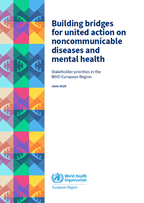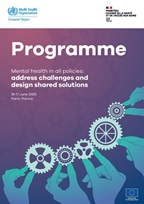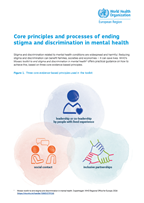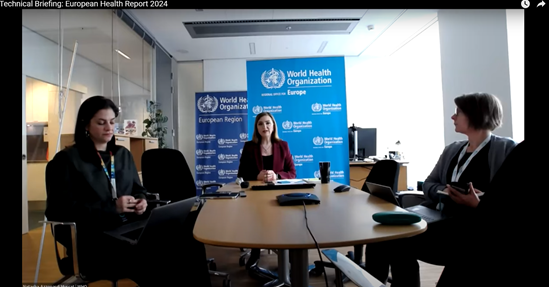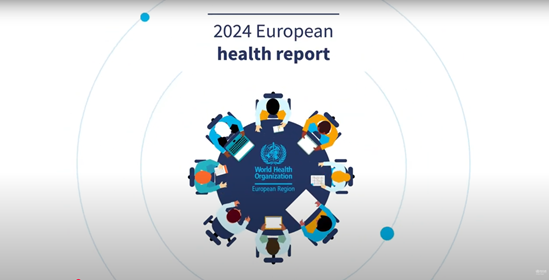Partnering with the European Union (EU) to tackle mental health challenges
WHO is partnering with the European Commission to protect and promote the mental health of more than 450 million people living in the EU, Iceland and Norway by improving country capacities to take a comprehensive approach to mental health.
An estimated 1 in 6 people had a mental health condition in 2019, both in the EU and in the wider WHO European Region. This number is expected to have increased by as much as 25% as a result of the COVID-19 pandemic. Children, adolescents and young people, among other vulnerable groups, are considered to be particularly at risk.
Access to mental health care is a key issue across countries. Although most countries have policies in place that aim to improve population mental health, there are challenges to implement these policies in many countries. These challenges include a growing shortage of health and care workers, as well as a need for stronger and more programmes aimed at preventing mental ill health and promoting well-being. Moreover, people with the lived experience of mental health conditions must be more involved in policy-making to ensure that countries develop policies that align with their needs.
Addressing these and other challenges requires countries to embrace a comprehensive approach, where the promotion of well-being and prevention of mental health conditions is considered as important as the treatment of such conditions. Such an approach requires the participation of all relevant stakeholders, from policy-makers and health and care workers to people who live with mental health conditions and their families.
The €11 million project, financed by the EU4Health programme, stems from the European Commission’s Communication on a comprehensive approach to mental health and builds on activities laid out in the WHO Framework for Action on Mental Health (2021–2025).
Under this project, WHO and the European Commission aim to equip both policy-makers and the health and care workforce with the skills and capacities to improve population mental health and well-being. The project focuses on tailored capacity-building and policy dialogues to make the best use of existing policies and resources, to support a comprehensive approach to mental health.
Key activities include:
- a comprehensive assessment of country needs, including the content and implementation status of mental health policies, how mental health data is collected, the mental health of the health and care workforce, and prevalence of adverse childhood experiences;
- tailored capacity-building according to each country’s needs, drawing on WHO tools and guidance, targeting leaders, health and care workers, and policy-makers;
- the development of a data monitoring framework to enable countries to set up systems for the real-time monitoring of population mental health data; and
- policy dialogues focused on improving and implementing existing policy, with the aim of creating sustainable improvements in mental health systems.










